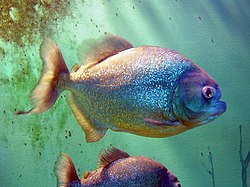 While we’re on the topic of nasals (blog, 28 May), it’s interesting to note that there’s one nasal that is pretty common in the world’s languages in general, but which we don’t have in English: the palatal nasal, ɲ.
While we’re on the topic of nasals (blog, 28 May), it’s interesting to note that there’s one nasal that is pretty common in the world’s languages in general, but which we don’t have in English: the palatal nasal, ɲ.When we borrow words containing a palatal nasal from languages that do have one, we have two possible strategies: map it onto nj, or map it onto simple n.
In final position, there’s no choice: it has to be n. So French Charlemagne ʃaʁləmaɲ becomes ˈʃɑː(r)ləmeɪn (mostly), and champagne ʃɑ̃paɲ becomes ˌʃæmˈpeɪn; we use the French name for German Köln kœln, namely Cologne kɔlɔɲ, which we pronounce as kəˈləʊn. In Boulogne bulɔɲ, on the other hand, we transfer the palatality to the vowel and say buˈlɔɪn.
Medially, we have nj in poignant, cognac, vignette. French doesn’t have word-initial ɲ, so the question of what to do with it doesn’t arise; but Italian does have it, and when confronted with gnocchi I think most people just say ˈnɒki, unless they are among the few linguistic sophisticates who know it ought to be ˈnjɒki. There’s a phonotactic problem there, though, in that in a stressed syllable English Cj- is on the whole restricted to positions before the vowel uː or something derived from it.
When it comes to Spanish, I think most British people ignore the diacritic in piña colada piɲakoˈlaða and just say ˈpiːnə kəˈlɑːdə. But Americans know more Spanish, and say ˈpiːnjə. In the case of cañon, fortunately we decided to anglicize its spelling to canyon, so everyone says nj.
Few British people know any Portuguese, so piranha, BrPort piˈraɲa, is usually just pəˈrɑːnə.
Now you know what the picture is for.










